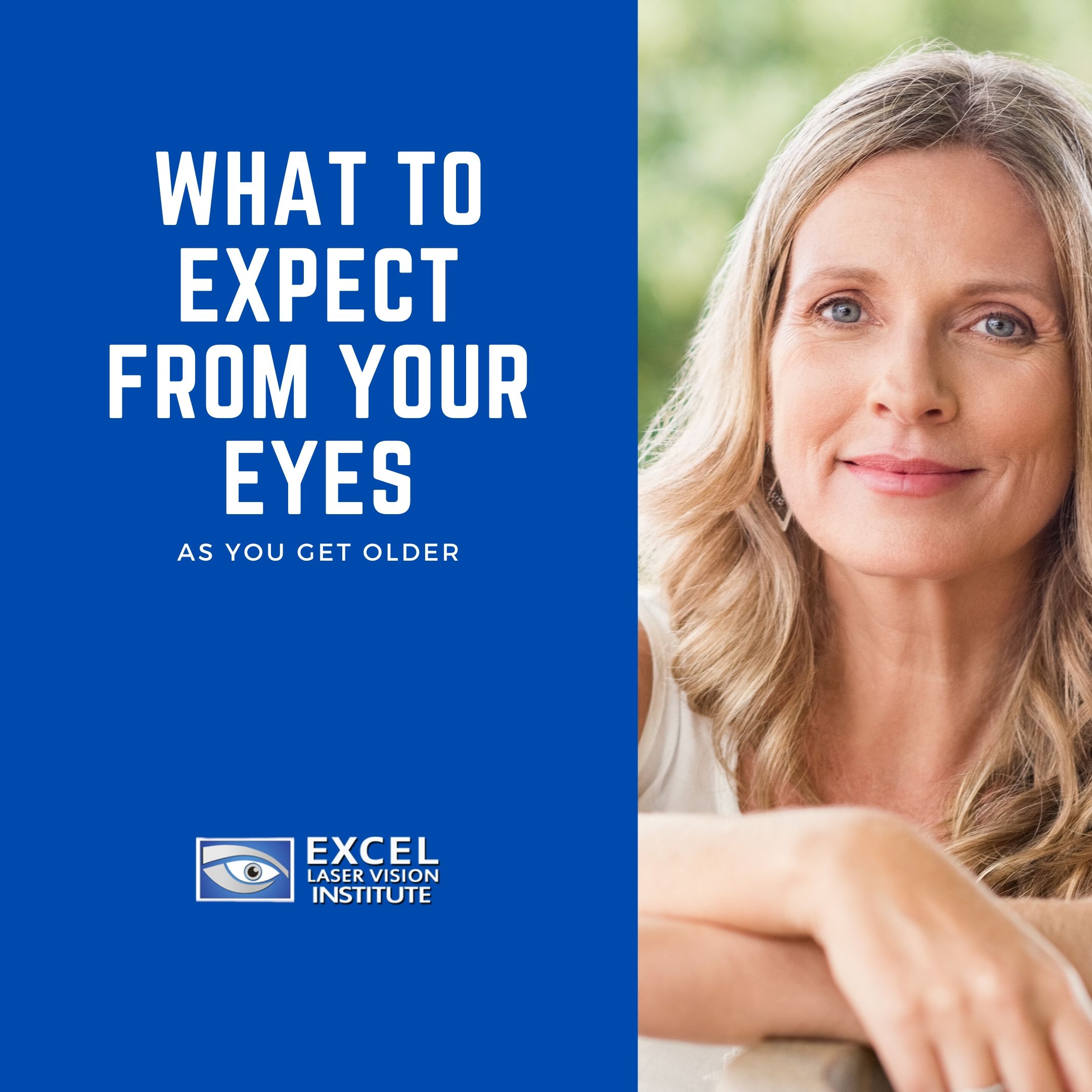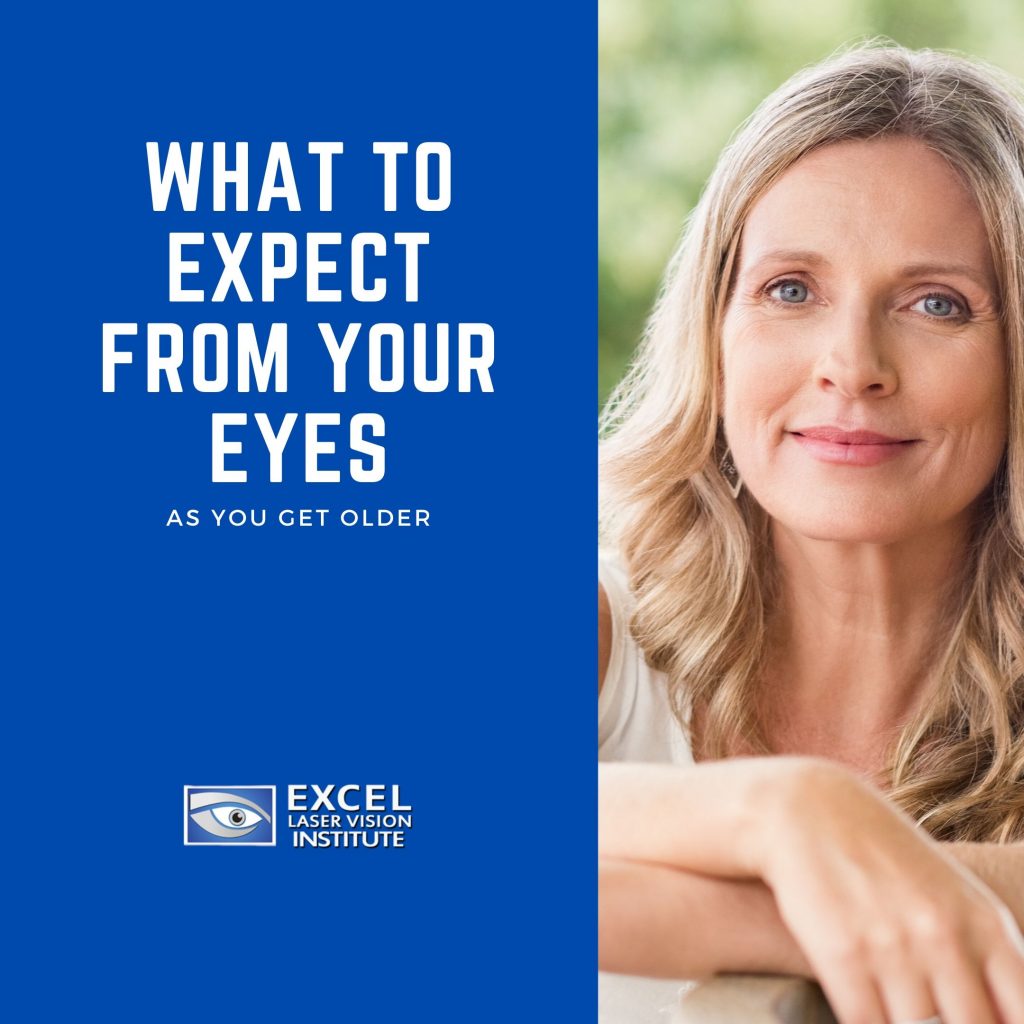
According to Doctor Moosa, a LASIK surgeon in Orange County, our eyes can deteriorate even if we maintain 20/20 vision for most of our lives. In fact, it is quite common for people to develop vision problems after turning forty. Yearly eye exams become increasingly important as you age, especially to monitor symptoms of glaucoma, macular degeneration, or cataracts. When these conditions are discovered early, patients increase their chances of maintaining strong, healthy eyes for a longer period of time.

Eye care professionals at LASIK clinics such as Excel Laser Vision Institute explain that not all age-related issues threaten vision; however, they can be uncomfortable and inconvenient enough to affect someone’s quality of life. Here are some of the most common aging eye conditions that people experience after turning forty:
Dry Eye
According to eye care professionals, certain hormonal shifts that happen later in life can cause a person’s mucous membranes to dry out. For example, women can experience symptoms of dry eye in the years directly before and after menopause as estrogen and progesterone levels decrease. These symptoms can be exacerbated by dry climates and frequent screen time. When staring at a computer, you only blink half as often as normal, which causes eye strain and dryness.
The best way to combat dry eye symptoms is to use lubricating drops. You can schedule an appointment with an eye doctor and speak to them about dry eye to see if they can prescribe eye drops to relieve any redness, itchiness, burning, and discomfort. There are many over-the-counter solutions that will help with this condition as well. Another way to ease dry eye symptoms is to drink plenty of water, avoid alcohol, and incorporate food that is high in omega-3s into your diet.
Worsened Vision for Reading
Many eye care professionals encounter older patients that suddenly have a hard time reading. This is quite natural and normal since our eye lenses get less flexible as we age. The best way to combat this vision problem is to visit an eye doctor or a LASIK surgeon in Orange County such as Doctor Moosa. You may qualify for laser eye surgery or there may be another procedure to help restore your close-up vision.
Worsened Vision at Night
Just as individuals may have a harder time reading as they get older, they may also have trouble seeing at night. This is due to the natural deterioration of the eye’s photoreceptors. Many patients may notice this problem while driving at night. The fastest way to improve night vision is to update your prescription. For a more long-term solution, you may consider laser eye surgery to treat low-order and high-order aberrations.
Glaucoma
Aging eyes commonly experience glaucoma, which is a buildup of pressure that damages the optic nerve. This can lead to vision loss, starting with peripheral vision. Eye care professionals recommend attending yearly eye exams to test for this condition. When glaucoma is diagnosed early, it can be properly treated.
Cataracts
Since our eye lenses are made of protein and water, it is common for those proteins to start clumping together. This phenomenon can lead to cataracts. Clumped proteins cause cloudy, blurry vision and halos. Eye doctors recommend anti-glare sunglasses to halt cataracts from becoming worse. Cataracts can be discovered at yearly eye exams and monitored in case cataract surgery is needed.
Macular Degeneration
The macula is a part of the eye located behind the retina. It is composed of light-sensing cells that are responsible for central vision. Unfortunately, the macula layers can start to break and leak, which leads to blurry vision. Macular degeneration is natural in older individuals. However, it can be minimized with a healthy diet and regular eye exams.



